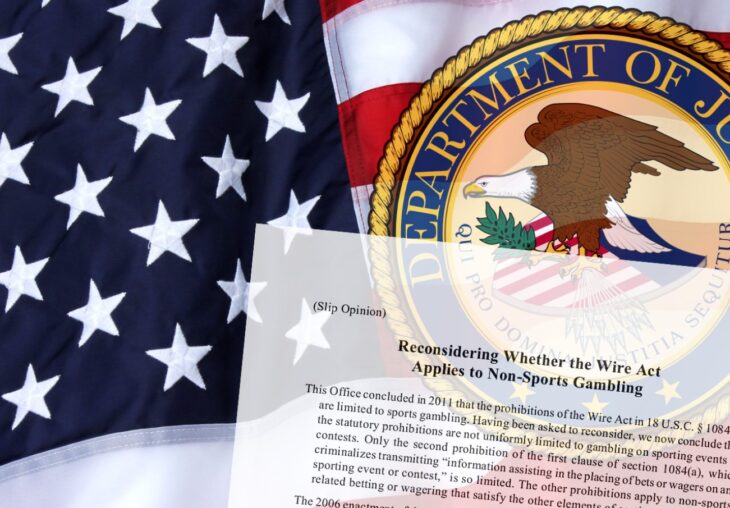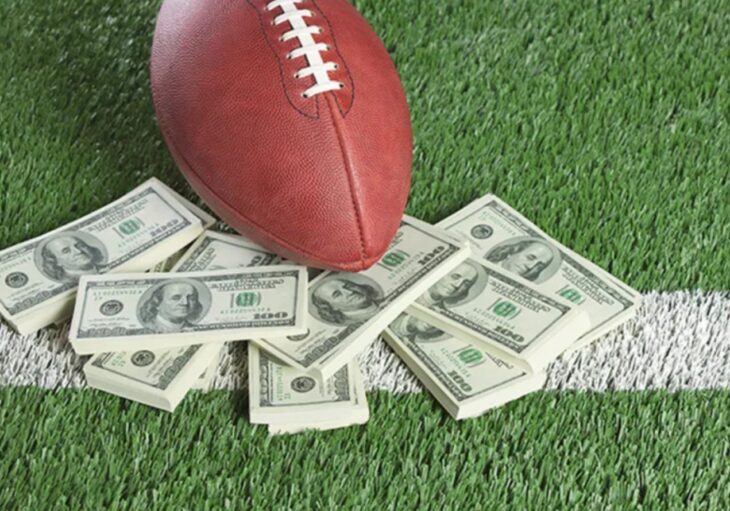If you’re like many people, the first time you heard online gambling was legal in the US was after the land mark Supreme Court Ruling of 2018. That’s when America developed a fever for online casinos and sports betting.
But contrary to popular belief, people have always gambled online in the US. But the way they did in 2000, and 2010 is different from how people bet in 2024. Here’s a brief overview of how the iGaming industry changed in the US over the years.
Contents
Legal Grey Area—1995-2006

Source: FinSMEs
The world’s first online casino launched in Antigua and Barbuda in 1994. After that, new slot and poker websites started to mushroom globally, including the US. Back then, however, America didn’t have online gambling laws.
It was neither legal nor illegal to play online casino games in the states. But in 1999, a group of Christian Conservative organizations sponsored a bill to ban online gambling in the country.
Thanks to a lot of lobbying, though, the bill failed. And as a result, online gambling continued to become a legal grey area until in 2006. During those years, poker boomed tremendously with almost every state having a poker website.
That said, the technology was not advanced. And games had dated graphics, websites crashed often and scams were prevalent.
Banned—2006 to 2011

Source: NullTX
Unlike most countries, the US banned online gambling in a rather odd way in 2006. The George Bush government didn’t want foreigners to acquire crucial American ports. More so, it wanted to block an acquisition of P&O ports by Dubai Ports.
As a counter measure, legislators hastily passed 20 bills that would protect American port businesses from foreign acquisitions. But oddly, they tacked in a bill banning online gambling in there. It was an unrelated matter.
But a bill is a bill and that means it was illegal for Americans to gamble online. Technically, it banned foreign online casinos and sportsbooks from accepting bets from American customers. But all the same, it made it difficult for players from the US to gamble online.
Online Casinos are Safe—2011 to 2018

Source: CalvinAyre.com
In 2009, New York and Illinois wrote a letter to the Justice Department asking for an interpretation of the Wire Act. Their main concern was whether running online lottery games broke the rules of the 1961 Wire Act.
Two years later, the Justice Department, through Assistant Attorney general Virginia Seitz responded. It was a long reply published in a 13-page document that showed the Wire Act only prohibited sports betting.
As such, states were free to run online lotteries or open online casinos at will. The information also encouraged offshore casinos to welcome American customers. And states like New Jersey and Nevada passed bills to permit slot and poker websites by 2013.
Today, New Jersey is an online gambling hub. And although it’s not the only place where online casinos are allowed. casinogurus.com says the Garden State is home to some of the best Internet-based casinos in the US.
New Jersey’s biggest competitors are Pennsylvania, Delaware and West Virginia. Nevada, which also permitted poker websites in 2013, never allowed slots, roulette, and blackjack. And for that reason, it never took the chance to extend its casino dominance to the Internet.
Online Gambling is Legal in More States—2018 to Present

Source: finance
After New Jersey legalized online casinos in 2013, Governor Chris Christie vowed to take things to the next level. His next mission would be to sponsor a bill that would strike off PASPA—the 1992 Act that banned sports betting.
In 2018, New Jersey won its war against PASPA. And it opened doors for every state in the country to legalize sports betting. Obviously, the Garden State legalized sports betting immediately.
And guess who else joined? Nevada, Delaware, Pennsylvania and West Virginia. By early 2024, at least a dozen states had legalized sports betting although not all of them allowed Internet-based betting.
Mobile Betting is Becoming the Norm

Source: Mobile Betting
Amid increased online gambling legalization, mobile is the device of choice for many Americans. In fact, ‘mobile betting’ are the official words for online sports betting in most states where it is legal.
That’s alright, though. Over 80% of Americans own mobile devices. And most of them use these devices to browse the Internet often. More importantly, a growing number of people in the country use their iPhones and Android devices to bet on sports.
Usually, sportsbooks support mobile betting in two ways:
- Native apps
- Mobile websites
Native mobile websites are pretty popular in the US. But in most parts of the world, mobile websites dominate the industry. All the same, both platforms provide all the features required to bet on sports.
Not All Sports are Allowed

Source: phonecasino
Unlike the UK where sports betting has been a gambling staple for 15 years, sports betting is a new industry in the US. And for that reason, many states are still grappling with How to regulate sports in their jurisdictions.
With that in mind, most states that allow sports betting accept all forms of sports betting. That means you can wager on the major leagues: NFL, NBA, MLB, NHL and MLS. And you can be on minor leagues and international sports.
The only leagues banned are usually college sports. And in many cases, states ban betting on college sports located within the state. So, people in Delaware can’t bet on college games based in Delaware. But they can wager on collegiate games from other states.
Daily Fantasy Sports Commercialization

Source: European Gaming
Daily Fantasy Sports are now part of the US online gambling sector. And that’s because unlike other countries, DFS in the US are incredibly commercialized. There are at least a dozen DFS websites in the country.
But DraftKings and FanDuel are the two most dominant DFS websites. For the uninitiated, these websites let you draft a mock team of your favorite American team. Then you can compete with players from all over the country.
You can play the game free of charge or for real money. It’s pretty competitive but prices can hit up to $1 million.
